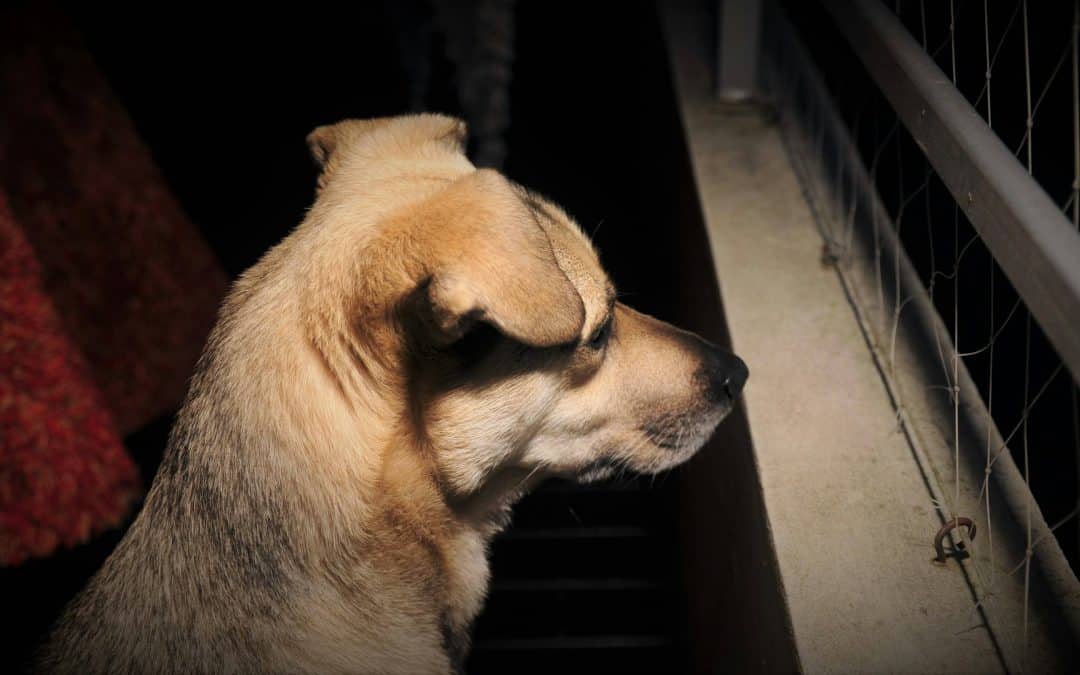Leaving your dog overnight at a boarding facility can feel like a big step. If your dog tends to get anxious in new settings, that drop-off might come with worry for both of you. Sudden changes, new surroundings, and unfamiliar smells can make even the most easygoing dogs feel unsettled. That’s why a little prep ahead of time can help keep stress levels low.
Anxiety in dogs before boarding isn’t unusual, but it doesn’t have to lead to a rough experience. Whether it’s your pup’s first overnight stay or they’ve done this before but didn’t love it, knowing how to support them ahead of time makes a big difference. The goal is to set things up so your dog feels secure and safe while you’re apart.
Understanding Dog Anxiety Before Boarding
Every dog shows anxiety differently. For some, the signs are more obvious like shaking, barking, pacing, or whining. Others might pull back, refusing to eat or becoming extra clingy in the days before boarding. No one knows your dog better than you, and if you’ve picked up changes in habits or mood, that’s worth paying attention to.
Dogs often pick up on our routines. If you start packing bags, acting stressed, or changing your schedule in the days before their stay, they can sense something’s off. That difference can spark anxiety even before they leave the house. Being away from their regular environment, especially if they’ve had limited socialization or separation, can add to that uneasy feeling.
Signs of anxiety leading up to a stay might include:
– Loss of appetite or disinterest in favorite treats
– Restlessness or pacing throughout the house
– Barking more than usual, especially when left alone
– Hiding, withdrawing, or avoiding eye contact
– Chewing or licking objects they normally ignore
Keep in mind that not every nervous behavior means panic. But if these patterns show up close to the time of boarding, it helps to plan ways to reduce that stress before the stay begins. Addressing it early can prevent a buildup of worry and lead to a smoother transition.
Pre-Boarding Familiarization Strategies
One of the best ways to calm pre-boarding nerves is to make the place feel less like a mystery. Dogs feel better in spaces they’ve already explored, especially if they’ve met the people who’ll care for them. By taking time to introduce your dog to the boarding environment beforehand, you can lower that unfamiliarity that might feed their anxiety.
Here are a few ways to do that:
1. Schedule a short daycare visit if the facility offers it. Even just a few hours allows your dog to sniff around, meet the staff, and get used to the scents and routines.
2. Walk your dog around the outside of the building before you go inside. It gives them a moment to absorb the new space on their terms.
3. Visit during quieter times if possible. Fewer dogs and less noise can help with a more relaxed visit.
Simple exposure like this builds familiarity. Just like people feel better visiting a new place before staying overnight, dogs do too. One owner shared that after visiting the facility a couple of times for short stays, their pup bounded in wagging even on the official boarding day. That change came from creating positive experiences first.
If your dog tends to be sensitive or cautious, a slower pace can be better. Let them approach things at their comfort level. These small steps can lead to a much calmer goodbye and a better time apart for both of you.
Packing Comfort Items That Soothe Your Dog
A few familiar items can go a long way in helping your dog feel more at home during their overnight stay. Just like we sleep better with our own pillow or blanket, dogs do better when they have something that smells like home. Even one comfort item can ease the transition and make an unfamiliar space feel safer.
Consider including:
– A favorite blanket or towel that smells like home
– A soft toy they love to snuggle with or gently chew
– An old t-shirt or hoodie that smells like you
– A food bowl or slow feeder they’re used to
These aren’t just extras you toss in their bag. They’re reminders of comfort. Be sure to label the items in case they get moved around during cleaning or playtime. Avoid packing anything valuable or easily damaged. If your dog tends to chew when anxious, it’s better to bring a low-cost comfort item that you won’t mind parting with.
A good example: One pet parent brought their dog’s favorite stuffed frog, a beat-up toy they’d had since puppyhood. That toy stayed in the kennel every night, and the staff noticed the dog always curled up with it at bedtime. It didn’t stop all the nerves, but it brought some calm when everything else felt new.
These small steps can be easy to overlook, but they make a big difference. Smells and textures that remind your dog of home offer a sense of safety, especially during the first night when anxiety tends to peak.
Stick to Familiar Routines and Communicate Clearly
Keeping things predictable is one of the easiest ways to support an anxious dog before boarding. In the days leading up to the drop-off, try to stick to normal wake-up, walk, and feeding times as much as you can. Last-minute schedule changes or stress at home can raise your dog’s alert level. When things feel familiar and stable, they’ll be better prepared to handle the change.
Also, clear communication with the boarding team can really improve the experience. The people caring for your dog want to know what helps them thrive. Share key info like:
– Feeding schedule and food sensitivities
– Any medications or supplements
– Play habits, energy level, and preferred naps
– Anxiety triggers like loud noises or thunderstorms
– Signs your dog is feeling stressed
The more the staff knows, the more they can adjust the care to suit your dog’s needs. If your dog doesn’t like group play but loves quiet one-on-one time, that’s good to let them know. If certain commands work best, write them down in advance. You’re not being picky. You’re helping them understand your dog better.
It also helps to avoid making parting a big deal. Keep drop-off calm and positive. Overly emotional goodbyes can make dogs feel unsure right before the stay begins. A confident, relaxed goodbye tells your dog there’s no reason to worry. And chances are, once they sense you’re okay, they’ll handle things much better too.
Making the Stay Less Stressful for Your Dog
Preparing for dog boarding is less about last-minute checklists and more about building comfort through small, thoughtful steps. Whether your dog is confident in new settings or tends to get nervous, lowering their stress before arrival will set the tone for a better experience.
It’s natural to feel some guilt or concern when leaving your dog overnight, but with the right prep, they can settle in more easily. What matters most is creating a plan based on your dog’s habits, personality, and comfort level. Every dog is different, so take your cues from them and build from there.
A little time spent planning goes a long way in keeping your dog happy, calm, and confident at drop-off and feeling that way throughout their stay.
For a tailored and stress-free experience, trust The Dog Spot for your pet’s next stay. Our dog boarding services in Nashville are designed to make your furry friend feel at home, offering personalized care that fits their needs. Let us know your dog’s unique preferences, and our experienced team will ensure they have a relaxed and enjoyable visit.

